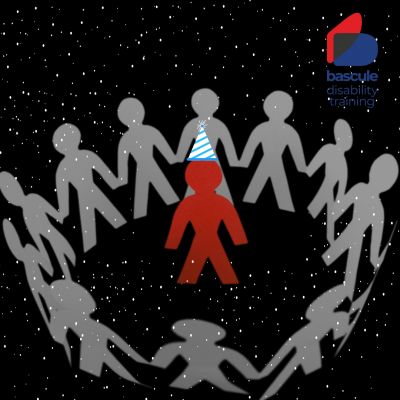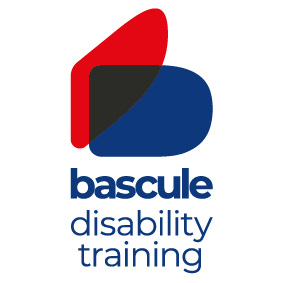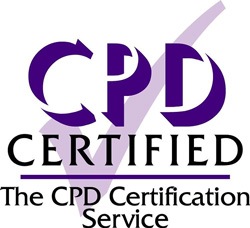Making office festive fun accessible for all

It’s that time of year when workplaces are having their annual festive 'knees up'- but is your party fun for all? How much effort and planning goes into consideration for guests with disabilities? Chris Jay, Bascule’s Managing Director, considers how festive celebrations can be more inclusive…
At the end of the year, most organisations have a celebration of one kind or another, but it isn’t always necessarily fun for all. Often, these celebrations can be planned without consideration for guests with disabilities – but there are a few simple steps you can take to ensure all guests enjoy festivities.
One of the best ways to ensure your party caters for all staff members, is by having a diverse group in the planning team, so everyone is represented in the festive arrangements. In terms of ensuring that people with disabilities are also catered for, consider all team members and their individual requirements. For example, neurodiverse staff members or those with anxiety related disabilities, may not appreciate a loud environment, or activity that may cause a sensory overload. At best, have an alternative space for them to take a break, such as a quiet room in the venue.
For people who are wheelchair users or have mobility issues, the venue will need to be fully accessible with suitable toilets, entrances and exits, ramps, elevators and so on. Avoid those cosy restaurants and the older venues that are listed buildings as they are often unable to make adjustments to their structure and are therefore more likely to present problems.
Consider also space inside the venue. Whilst the owners might consider their buildings accessible because of their entrances and exits, how well can people get around? Those with mobility problems and those using wheelchairs will need a little extra room as entering the building might be fine- but getting around to mingle, accessing the bar, or gaining access to the whole venue, might be more of a challenge. There’s nothing worse than successfully getting into a venue, only to find accessibility has not been fully thought through, and so you are restricted to only certain areas and people at the party.
Hidden disabilities
It’s worth considering that many organisations have staff with hidden disabilities that have additional requirements they’ve not had the confidence to reveal. You could circulate a pre-event poll that staff could answer anonymously that may give you a comprehensive view of how everyone would like to celebrate and what needs they may have, but not wish to make public. If this is the case, however, it may be time to consider training for key staff to make your environment more inclusive.
Non-Alcoholic fun
Consuming alcohol, whilst at the top of some people’s list, is not everyone’s priority. Sometimes, people who have mobility issues are drivers, take medication or have a disability that does not mix well with alcohol or do not want to rely on the poor accessibility or unreliability of public transport at night. You could try and incorporate an event such as a quiz, or an afternoon event to steer the focus from drinking, or at least have a wide range of non-alcoholic drinks available. Try and make sure that you don’t have a workplace culture that encourages heavy drinking to the point that there is a pressure to consume. There are a myriad of reasons why many people won't want to.
My personal experience of parties/night clubs or any place where drunk people congregate is that people will ask stupid, blunt or inappropriate questions of those with disabilities. Whilst we all encourage staff not to ‘overindulge’ we know that this is likely. Perhaps ensuring staff awareness training has been done before the festive party may be a good idea!
Liability and intoxication
If alcohol is central to your celebrations, it's worth remembering that employers can be vicariously liable for discriminatory or inappropriate behaviour by their employees at work events, even if they take place off-site. If, for instance, someone makes a hurtful or discriminatory comment about a colleague’s disability, it could still lead the company to a claim of disability discrimination or harassment under the Equality Act 2010. The reason being, courts often see 'work parties' as an extension of the workplace, so employers need to tread carefully.
If something does go wrong, it’s important to investigate quickly, take action, and support anyone affected. Without these measures, an employer could still be held liable, even if they didn’t directly condone the behaviour.
The case of Bellman v Northampton Recruitment Ltd (2018) highlights how things can escalate. In this instance, a managing director assaulted an employee at a Christmas party, and the company or employer itself was found to be liable because the incident was closely linked to the event and the director’s role. While this example involved violence rather than discrimination, it shows how easily things at work events can spiral into legal trouble, with the company being responsible for the employee's actions.
After parties
If it’s likely there will be after dinner party plans, make sure it’s not an impulsive decision, and the party continues where some cannot get to, such as the nearest cellar bar, that leaves wheelchair users and those with complex needs behind, or a busy environment that lacks the space for someone using a wheelchair to enter or move around in.
Workplace parties can be a great event, boosting morale and helping staff to celebrate their achievements. They also give you the opportunity to develop your workplace culture, demonstrating that you are an empathetic and understanding employer, that wants all staff to be included in celebrations. Using this opportunity, you can show people with disabilities that you are supportive throughout all aspects of their workplaces, and with a bit of foresight, everyone can be included in the celebrations.
Chris Jay, Managing Director and Founder of Bascule Disability Training



